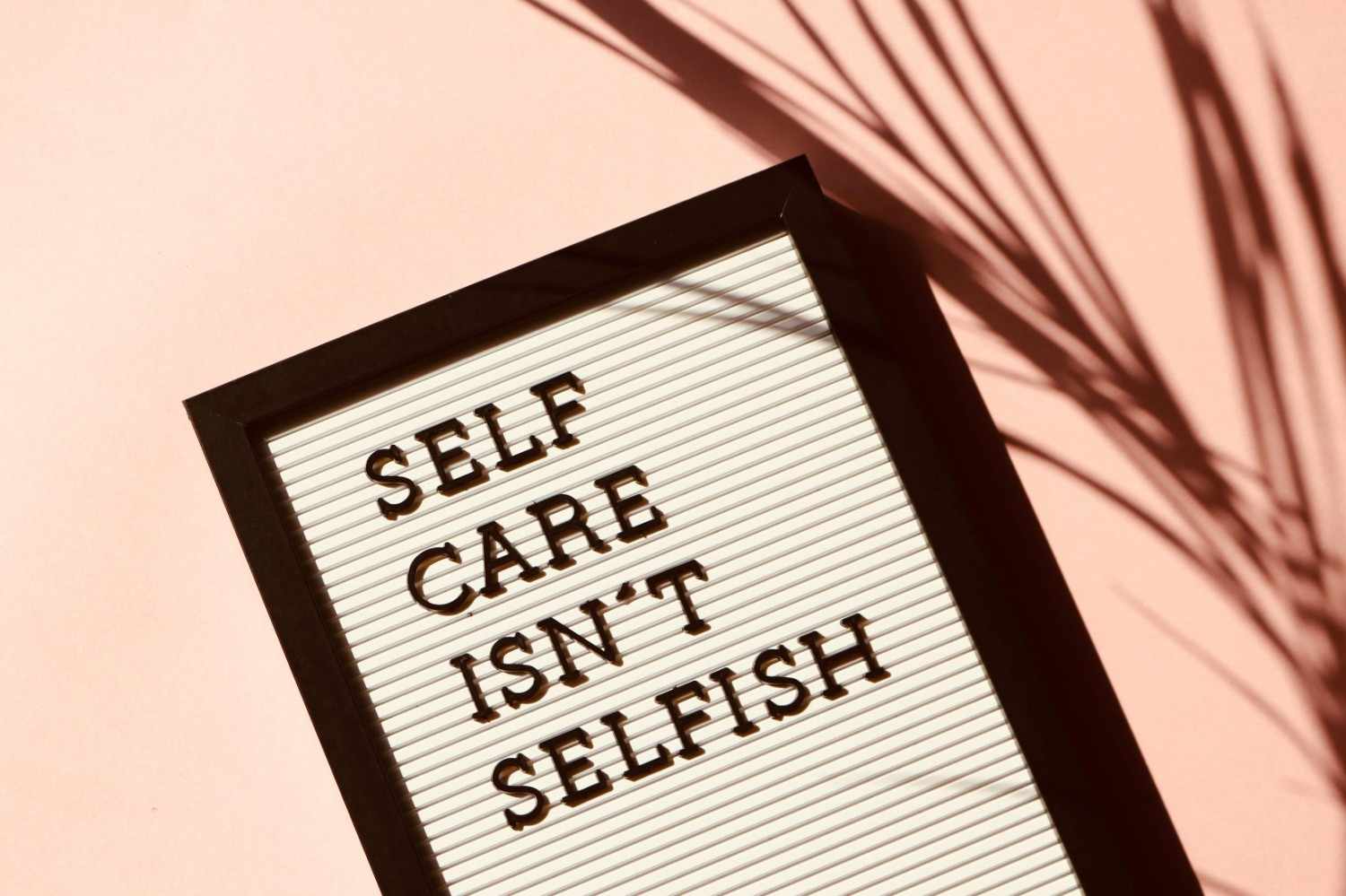We are taught that self-improvement is a project of addition and subtraction, a constant effort to fix our flaws and acquire new strengths. But what if the most powerful path to self-love was not about changing who you are, but about profoundly appreciating who you "already" are? Gratitude is often viewed as an external practice, a "thank you" directed at others. The true magic, however, happens when you turn that powerful lens inward. This article explores how the simple, consistent practice of self-directed gratitude can dismantle the inner critic, heal your relationship with your body, and build an unshakeable foundation of self-worth.
Key Points
- Gratitude is an active practice, not a passive feeling, that "rewires the brain's negativity bias," making it easier to perceive your own inherent worth and strengths (1).
- Self-directed gratitude is not arrogance; it is the essential practice of acknowledging your efforts, character, and resilience, which directly counteracts the destructive voice of the inner critic discussed in Overcoming Negative Self-Talk.
- Practicing "functional gratitude" for your body, focusing on what it "does" for you rather than how it "looks," is a powerful tool for healing body image issues and moving towards the ideals of Body Positivity.
- Gratitude can transform your relationship with your past by reframing painful experiences as sources of wisdom and strength, turning scars into symbols of resilience.
- Simple, consistent rituals like a self-gratitude jar or daily journaling prompts are practical ways to integrate this practice into your life and build a foundation of authentic self-love.
Introduction: The Relationship You Can't Escape
There is one relationship that will be with you from your first breath to your very last: the relationship you have with yourself. For many of us, this primary relationship is defined by a relentless and exhausting project of self-improvement. We operate from a place of deficit, constantly scanning for flaws to fix, weaknesses to overcome, and imperfections to hide. Our inner monologue is that of a harsh project manager, forever pointing out where we fall short. But what if we took a radically different approach? What if, instead of trying to "fix" ourselves into a version we could finally love, we started with an act of profound "appreciation" for the person who is already here?
Gratitude is often understood as an external practice, a "thank you" directed at a person for a kind gift or at the universe for a beautiful sunset. This is a valuable practice, but it is only half of the equation. The true, transformative power of gratitude is unleashed when you turn that powerful lens inward. Self-directed gratitude is the conscious act of seeking out and acknowledging the good within yourself. It is the practice that starves the inner critic and feeds the inner ally. This article, by psychologist Dr. Anya Sharma, is your guide to this life-altering practice. We will explore the science of how gratitude rewires your brain and provide a practical toolkit for making it the cornerstone of your journey to authentic self-love. All information is current as of Sunday, September 14, 2025 at 12:11 PM GMT from Kumasi, Ashanti Region, Ghana.
The Neuroscience of Appreciation: How Gratitude Changes Your Brain
To understand why gratitude is so effective, we must first look at the default setting of the human brain. Our brains are hardwired with a "negativity bias," an evolutionary hangover from a time when survival depended on being hyper-alert to threats. This bias means we are naturally more attuned to negative experiences than positive ones; we remember the insult more vividly than the compliment, and we ruminate on the one thing that went wrong instead of the ninety-nine things that went right.
Your relationship with yourself is a primary victim of this bias. Your inner critic uses the negativity bias as its fuel, constantly scanning for evidence of your inadequacy. Gratitude is the "direct antidote" to this. It is a conscious, mental exercise that trains your brain to do the opposite, to actively scan for the good. When practiced consistently, it can physically change your brain.
The Gratitude Circuit
Neurological studies have shown that feelings of gratitude activate multiple regions of the brain, particularly the medial prefrontal cortex. This area is associated with understanding others' perspectives, empathy, and relieving stress. Furthermore, the practice of gratitude has been shown to boost neurotransmitters like dopamine and serotonin, the same brain chemicals targeted by many antidepressants. It is, in effect, a natural way to create a more positive and receptive mental environment.
When you regularly practice gratitude, you are strengthening these neural pathways. You are making it easier and more automatic for your brain to find and focus on positive information. This is not about ignoring the negative; it is about "balancing the scales." When your brain is no longer stuck in a deficit-focused loop, it has the capacity to see your own worth more clearly. You are creating the neurological conditions necessary for self-love to flourish.
Turning the Lens Inward: The Courage of Self-Gratitude
For many, the idea of being grateful "for" oneself can feel uncomfortable, even arrogant. We are often taught that humility means downplaying our strengths and focusing on our flaws. But this is a misunderstanding. Self-gratitude is not about ego or narcissism; it is about "honest and compassionate self-acknowledgment." It is the practice of seeing yourself clearly and appreciating the full picture.
Gratitude for Your Character, Not Just Your Accomplishments
Our culture tends to tie worth to external achievements: the promotion, the degree, the perfect family photo. Self-gratitude invites you to go deeper. It is about appreciating the "qualities" that make you who you are, independent of any external validation. These are your character strengths.
- Are you a loyal friend? Be grateful for your capacity for loyalty.
- Do you have a curious mind? Be grateful for your curiosity.
- Did you handle a difficult situation with patience? Be grateful for your patience.
A powerful exercise is to use the journaling prompts from Journaling for Self-Discovery to specifically explore your character strengths. This practice moves your sense of worth from a fragile, external foundation to a solid, internal one.
Gratitude for Your Effort, Not Just Your Outcome
Self-love withers under the pressure of perfectionism. Gratitude allows you to decouple your worth from your results. You can learn to be grateful for the "effort" you put in, regardless of the outcome.
- Did you try a new recipe that failed? You can be grateful for your willingness to try something new.
- Did you have a difficult conversation that did not go perfectly? You can be grateful for your courage in having it at all.
This is a core component of Embracing Imperfections. It allows you to be a good and supportive friend to yourself, even, and especially, when you fall short of your own expectations.
Gratitude for the Body: A Path to Peace
For so many, the body is the primary battleground for self-criticism. The practice of gratitude offers a powerful path to ceasefire and, eventually, to peace. As explored in our guide to body positivity, the goal is to shift your perception of your body from a purely ornamental object to be judged, to a functional, miraculous vessel to be appreciated.
The Power of "Functional Gratitude"
Instead of trying to force yourself to "love" the appearance of a body part you have spent years criticizing, start by being grateful for what it "does" for you. This is a practical and accessible entry point to body acceptance.
- For your legs: "Thank you, legs, for carrying me through my day, for allowing me to walk in the park, and for holding me up."
- For your arms: "Thank you, arms, for allowing me to hug the people I love, to carry my groceries, and to create things with my hands."
- For your stomach: "Thank you, stomach, for digesting my food and turning it into the energy I need to live my life."
- For your lungs: "Thank you, lungs, for the miracle of every single breath you take without me even having to ask."
This practice slowly and systematically dismantles the belief that your body's primary purpose is to be visually pleasing to others. It reconnects you to your body as your partner and ally in life, not your enemy.
Gratitude for Your Story: Finding Strength in Your Scars
A significant barrier to self-love is often the shame we carry about our past. We look back at our mistakes, our failures, and our traumas, and we see them as evidence of our brokenness. Gratitude offers a way to reframe that narrative. This does not mean being grateful "for" the painful event itself. You do not have to be grateful for trauma, abuse, or loss. It means being grateful for the "person you became in the process of surviving it."
From Victim to Survivor
This is a subtle but profound shift in perspective.
- You can be grateful for the "resilience" you built while navigating a difficult childhood.
- You can be grateful for the "compassion" you developed as a result of experiencing deep pain.
- You can be grateful for the "wisdom" you gained from a past mistake.
This practice allows you to integrate all parts of your story into a cohesive whole. It helps you see that your "scars" are not symbols of damage, but testaments to your strength. They are proof that you healed. This is a powerful way to make peace with your past and embrace the totality of who you are today.
Comparison: The Inner Critic's Mindset vs. The Grateful Mindset
| Aspect | The Inner Critic's Mindset (Deficit-Based) | The Grateful Mindset (Asset-Based) |
|---|---|---|
| Primary Focus | Scans for flaws, mistakes, and what is lacking. "What's wrong with me?" | Scans for strengths, efforts, and what is present. "What's right with me?" |
| Reaction to a Mistake | Sees it as proof of fundamental inadequacy. "I'm such a failure." | Sees it as a learning opportunity and is grateful for the resilience to try again. "That was hard, and I'm proud I attempted it." |
| Perception of the Body | An object to be judged, criticized, and "fixed" based on external standards. | A functional ally to be appreciated for its abilities and the life it supports. |
| View of the Past | A source of shame and regret; a list of failures that define you. | A source of wisdom and strength; a story of survival that has shaped you. |
| Internal Dialogue | Harsh, demanding, and conditional. "I'll be happy with myself when..." | Compassionate, appreciative, and unconditional. "I appreciate myself for who I am today." |
Conclusion: The Daily Practice of Seeing Yourself
Self-love is not a destination you arrive at one day. It is a daily practice, a conscious choice to be on your own side. Gratitude is the most powerful tool for that practice. It is the choice to stop looking for what is broken and to start appreciating the magnificent, resilient, and perfectly imperfect person who is already here.
Start small. Tonight, before you go to sleep, find just one thing to be grateful for about yourself. Maybe it is the effort you made at work. Maybe it is the kindness you showed a stranger. Maybe it is simply the fact that your heart is still beating. By planting this small seed of appreciation, you begin the profound work of cultivating a garden of self-love that can, with time and care, bloom into a radical and unshakable sense of peace.








